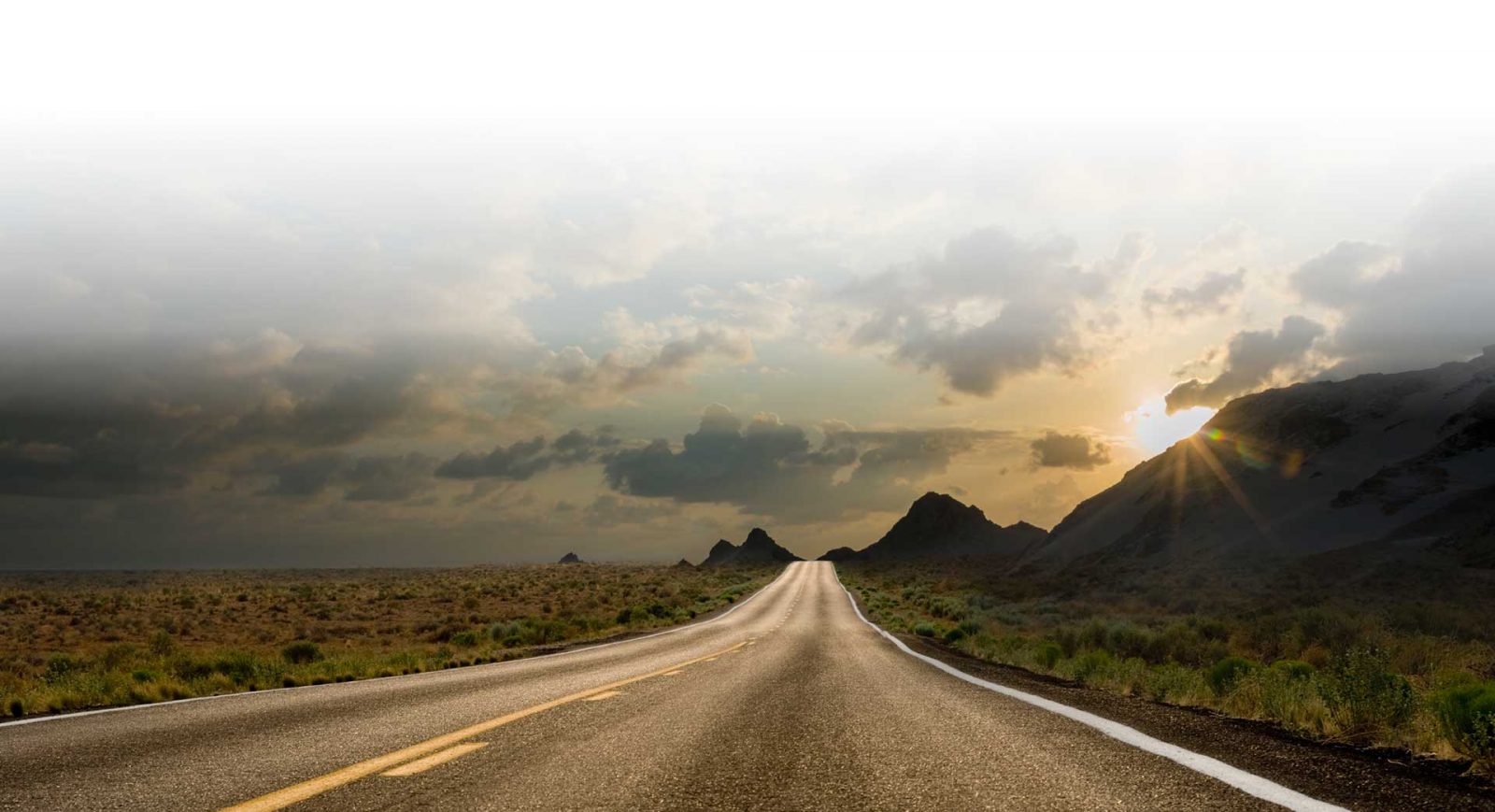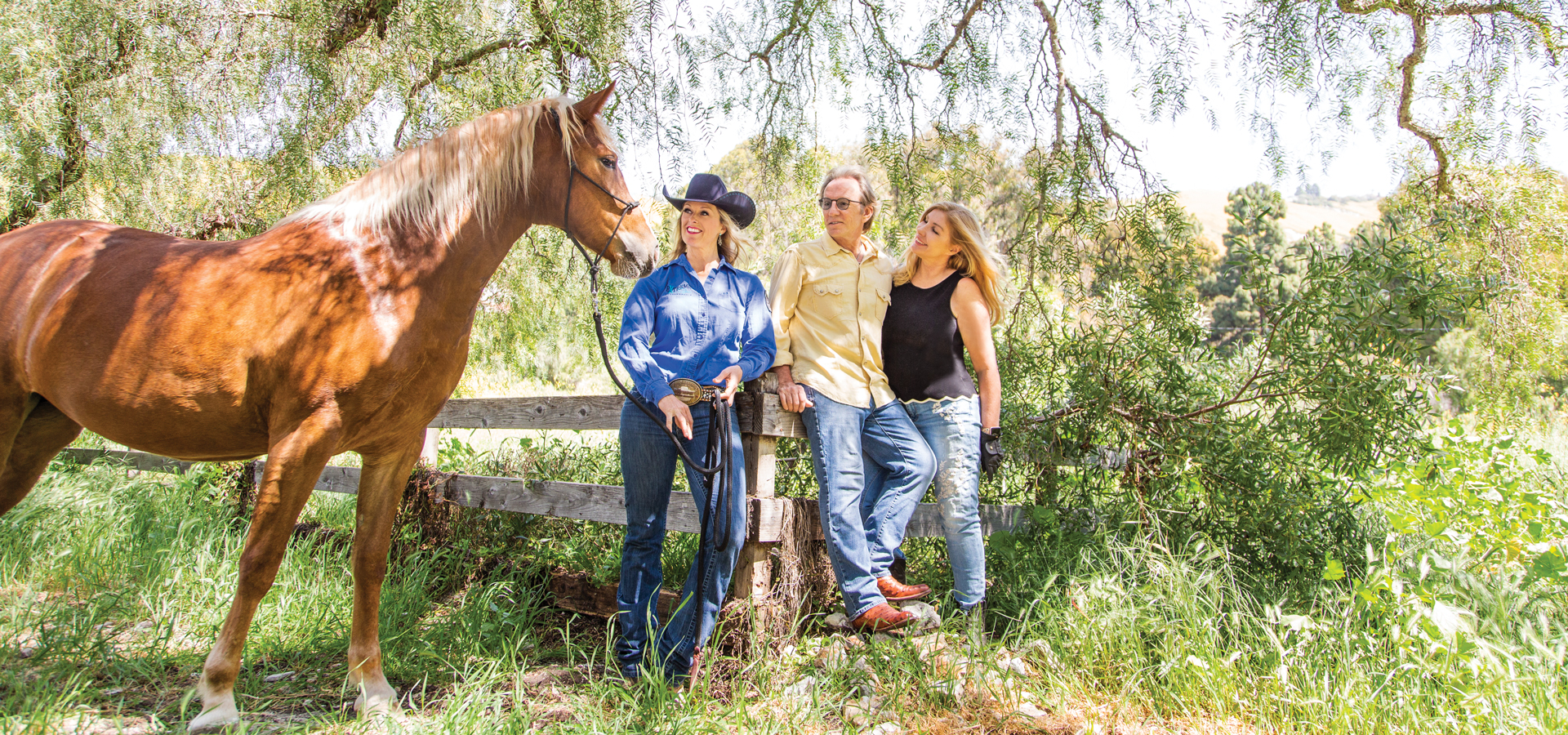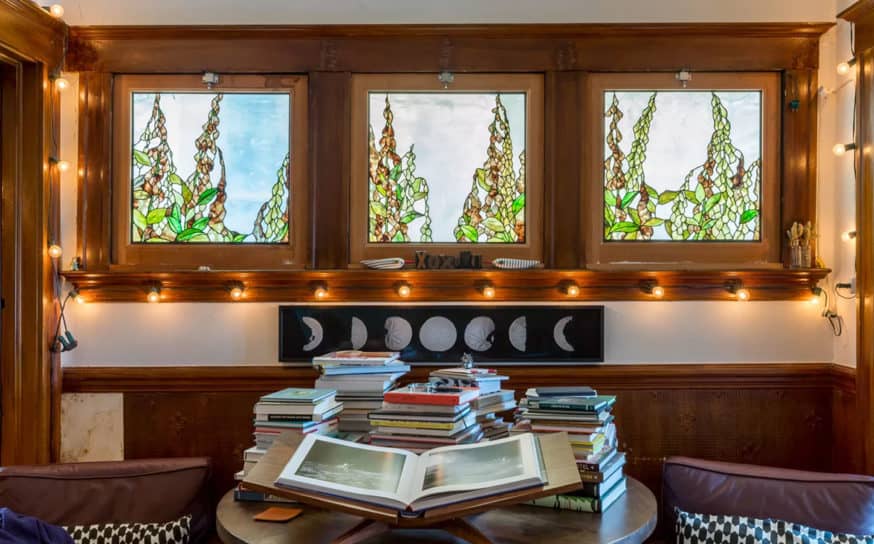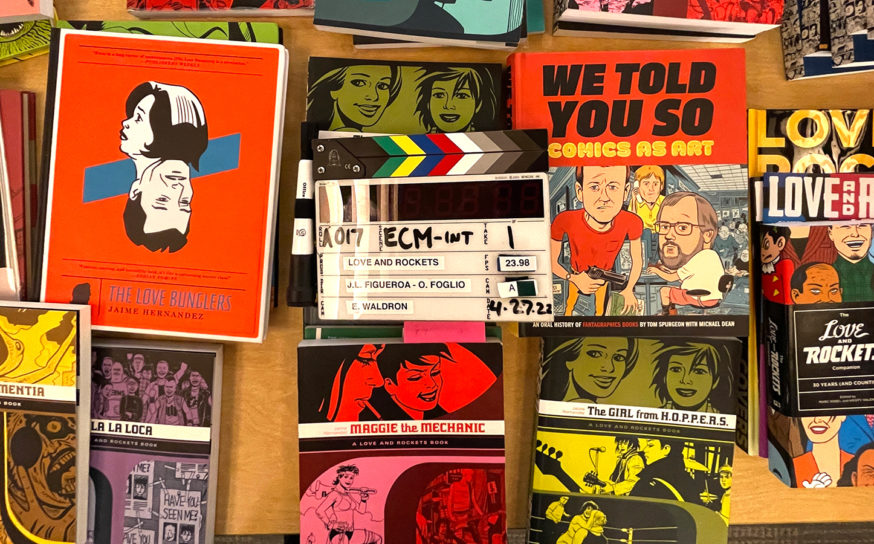These Californians are Stepping Up to Save America’s Wild Mustangs
They include a young competitive horsewoman, a daredevil cowgirl and a 1970s rock musician.
-
CategoryGiving Back, Makers + Entrepreneurs, Sustainability
-
Written byDiane E. Barber
-
Photographed byShane O’Donnell
-
AboveNoname with horse trainer Wylene Davis and adoptive owners Dewey and Penny Bunnell
Thoughts of America’s Wild West conjure up visions of cowboys, Native Americans, covered wagons, gunslinging outlaws and galloping horses. The free-spirited frontier days are forever immortalized through films, art and historic imagery, all of which have contributed to a particular reverence for wild horses in American culture.
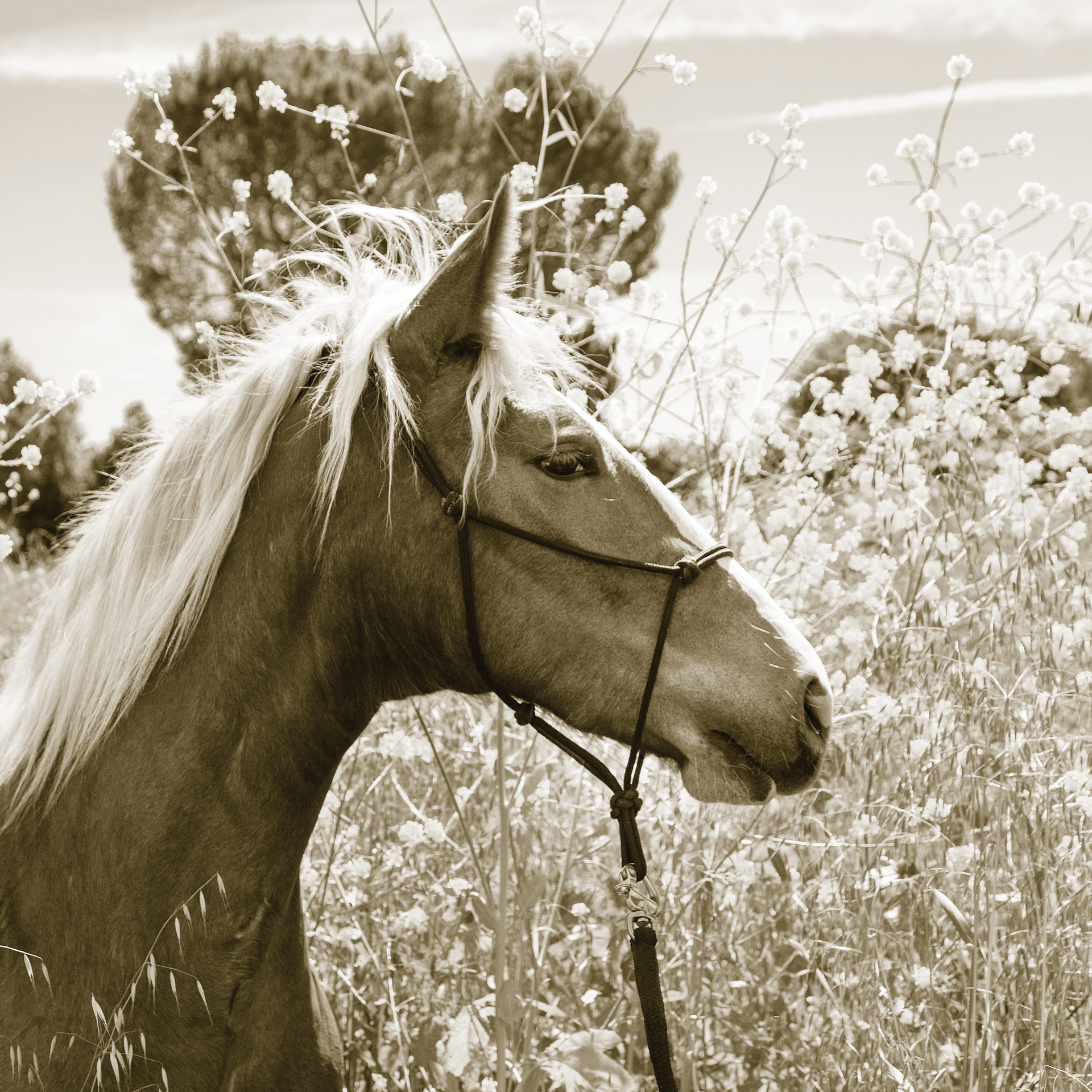
Noname
Today the plight of wild horses in the U.S. is a far cry from the romanticized admiration they originally commanded in the Old West of the 1800s. These beautiful creatures (primarily American mustang descendants of 16th-century Spanish conquistador herds) are unquestionably a symbol of American history. But now they are trapped in a web of political, commercial, environmental and ecological chaos.
While ranchers, oil and gas companies, politicians, environmentalists and animal rights organizations do modern-day battle in courtrooms wearing dress shoes instead of cowboy boots, the horses at the center of debate are increasingly compromised—and the freedom they have reveled in for centuries threatened.
When the Wild Free-Roaming Horses and Burros Act was established in 1971 to protect the declining wild equine population, an estimated 25,000 of them were living free on nearly 54 million acres of public land, with more than 42 million acres under the jurisdiction of the U.S. Department of the Interior’s Bureau of Land Management (BLM). The congressional declaration of the policy reads, “Wild free-roaming horses and burros are living symbols of the historic and pioneer spirit of the West; that they contribute to the diversity of life forms within the nation and enrich the lives of the American people; and that these horses and burros are fast disappearing from the American scene.” In honoring the historic role of horses on the American landscape, Congress deemed that they should be protected from capture, branding, harassment or death.
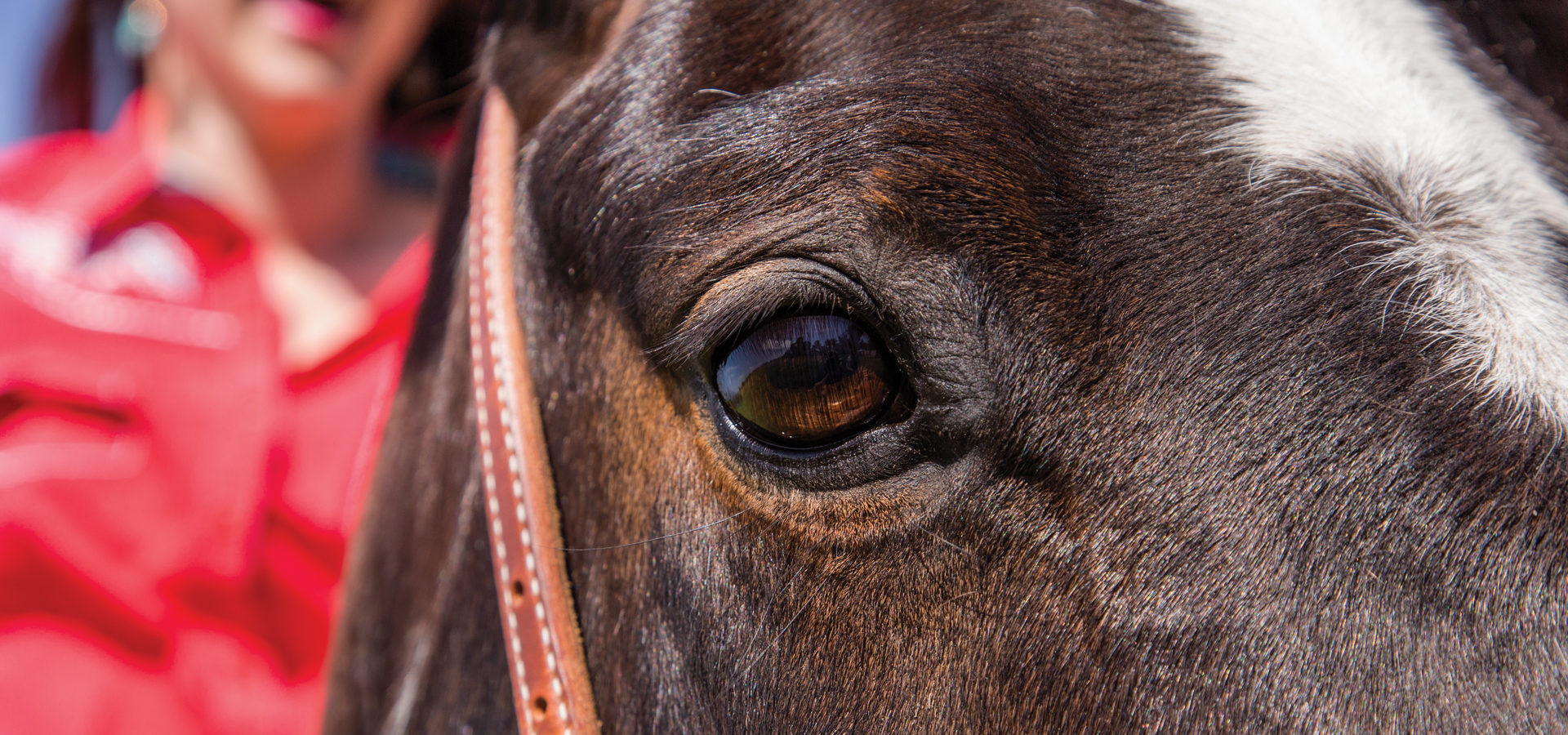
By federal government estimates, in March 2019 the wild horse and burro population was roughly 88,000 on 31.6 million acres of federally managed land. California has the third-largest number of free-roaming horses in the 10 western states.
The total Appropriate Management Level (AML), according to the government, is 26,690 horses, which is the impetus behind ongoing captures and relocations to holding centers. This has led to public outcry as special interest groups vie for the rights to public land use. Meanwhile, land designated for herd management has been reduced by 22.2 million acres, primarily due to water rights conflicts, urban expansion, land ownership transfers and habitat conservation.
Hanging in the balance of litigation, lobbying, petitioning and the furor of animal empathizers lies the fate of thousands of horses that have been roaming free since birth. Documentarians, media outlets, nonprofit organizations and private citizens have raised awareness of the harsh realities that the horses are now facing.
From dehydration and starvation to terrifying helicopter roundups, the separation of herds, relocations from home ranges, overcrowded federal holding corrals, auctions, and the possibility of being loaded onto transporters bound for Canada or Mexico slaughterhouses, the perils these magnificent animals face is haunting. But with all the horrors that so many of them experience, thousands have had the good fortune of finding their way into the hearts and homes of people who have chosen to make a difference in their lives.
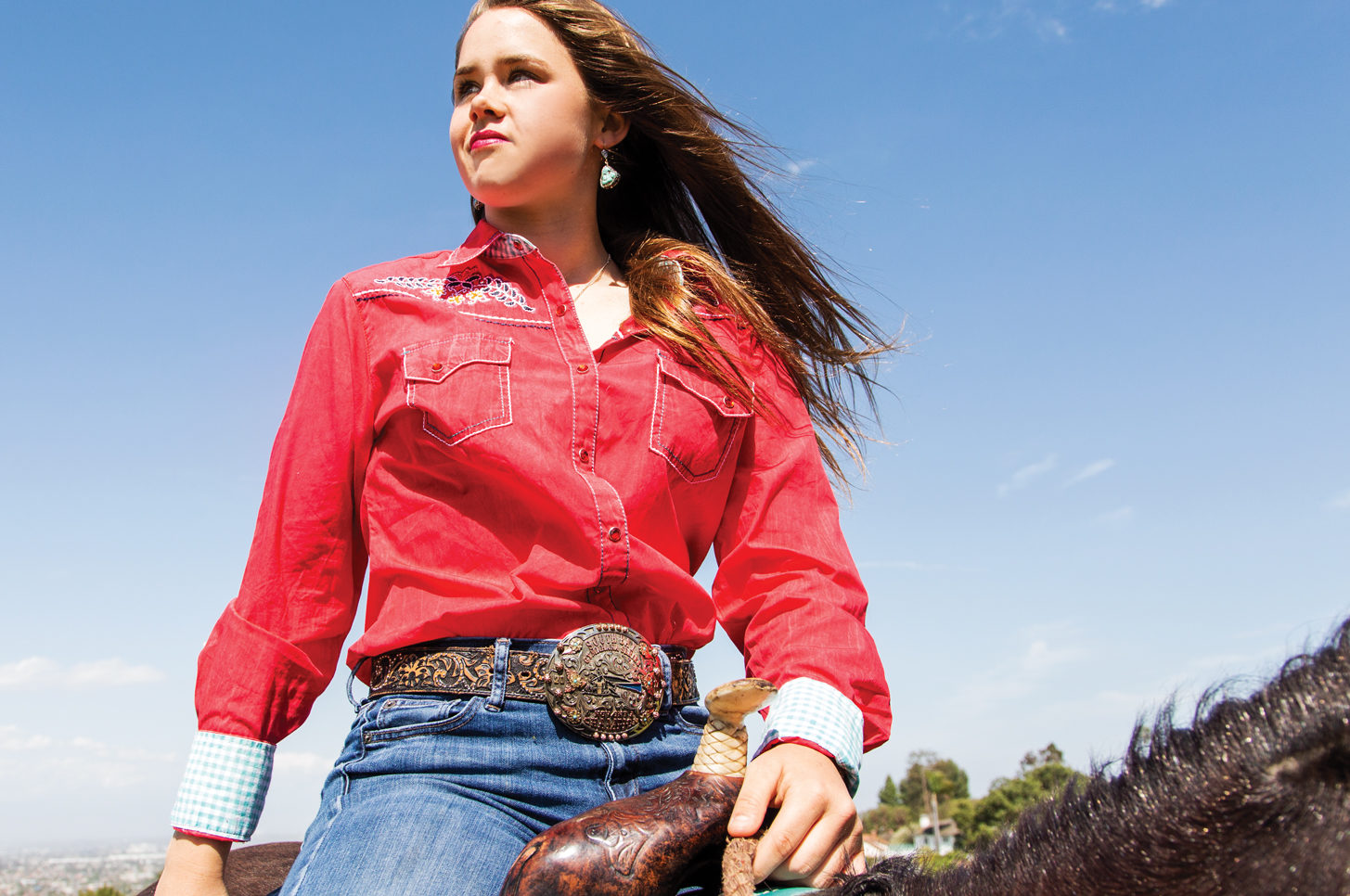
Youth equestrian competitor Charlotte Litchfield on the trails with Monkey
HOME OFF THE RANGE
Decades after the rock band America released the Grammy-nominated song “A Horse with No Name,” founding band member and songwriter Dewey Bunnell became a voice for our country’s wild horses. He wrote the song in 1971 while living in London and daydreaming about home and the deserts of California. The song includes the lyric: “After nine days I let the horse run free.”
Though horses were not a part of his life then, he unknowingly made a pact with herds of unnamed horses in the years to come. Today Dewey is not only a national spokesperson for the nonprofit organization Love Wild Horses, he and his wife, Penny, who is passionate about animal rights, adopted a young wild mustang in 2018 and named her Noname (pronounced No-nah-me).
The family’s adoption experience, which included relocating the filly to Southern California, was the inspiration behind Dewey’s advocacy for wild horses and burros in the U.S. His band has also been a fundraising conduit for the building of lifesaving water holes.
“There are countless nameless American wild horses and burros that my horse-loving wife, daughter and I want to give voices to,” Dewey shares. “The number of them that remain roaming free on our public lands is rapidly diminishing, while tens of thousands of them are currently living in BLM facilities awaiting adoption and struggling in difficult conditions. Our legacy of wild horses is at risk while livestock ranching, oil, gas fracking, climate change and lack of food and water are displacing them.”
The Bunnell family first saw Noname in images by Jeanne Nations, founder of Photographers for the Preservation of Wild Horses and Burros, who photographed the horse roaming free in its natural environment. The young sorrel-colored filly was rounded up with her herd in northern Nevada by helicopters in September 2018. Her neck was freeze-branded with coded government identification, and she was moved to a BLM holding center in Reno, Nevada.
With the help of Jeanne, the Bunnells followed the horse’s capture and relocation and then started the adoption proceedings through the Nevada Department of Agriculture. The process included an extensive application, confirmation of suitable housing, Nevada Certificate of Veterinary Inspection and a $125 fee paid to the BLM. When the adoption was approved, the Bunnells rented a horse trailer, picked up their new family member—who was tagged #5606—and drove her home to California.
After Noname’s first year with the Bunnells, a veterinarian verified that she was healthy, and the BLM issued a certificate of ownership. She is now one of roughly 240,000 horses and burros that have been adopted through the BLM since 1971. According to Penny, 2-year-old Noname has adjusted well to living with their family.
“She now thinks we are her herd!” she says. “We have been patient with her and have worked slowly with a lot of rewards. Dewey and I also recently participated in a local behavioral training clinic with Wylene Davis—a professional horse trainer from Arizona who is known for her wild-mustang expertise. Wylene was actually the first one to ride her.”
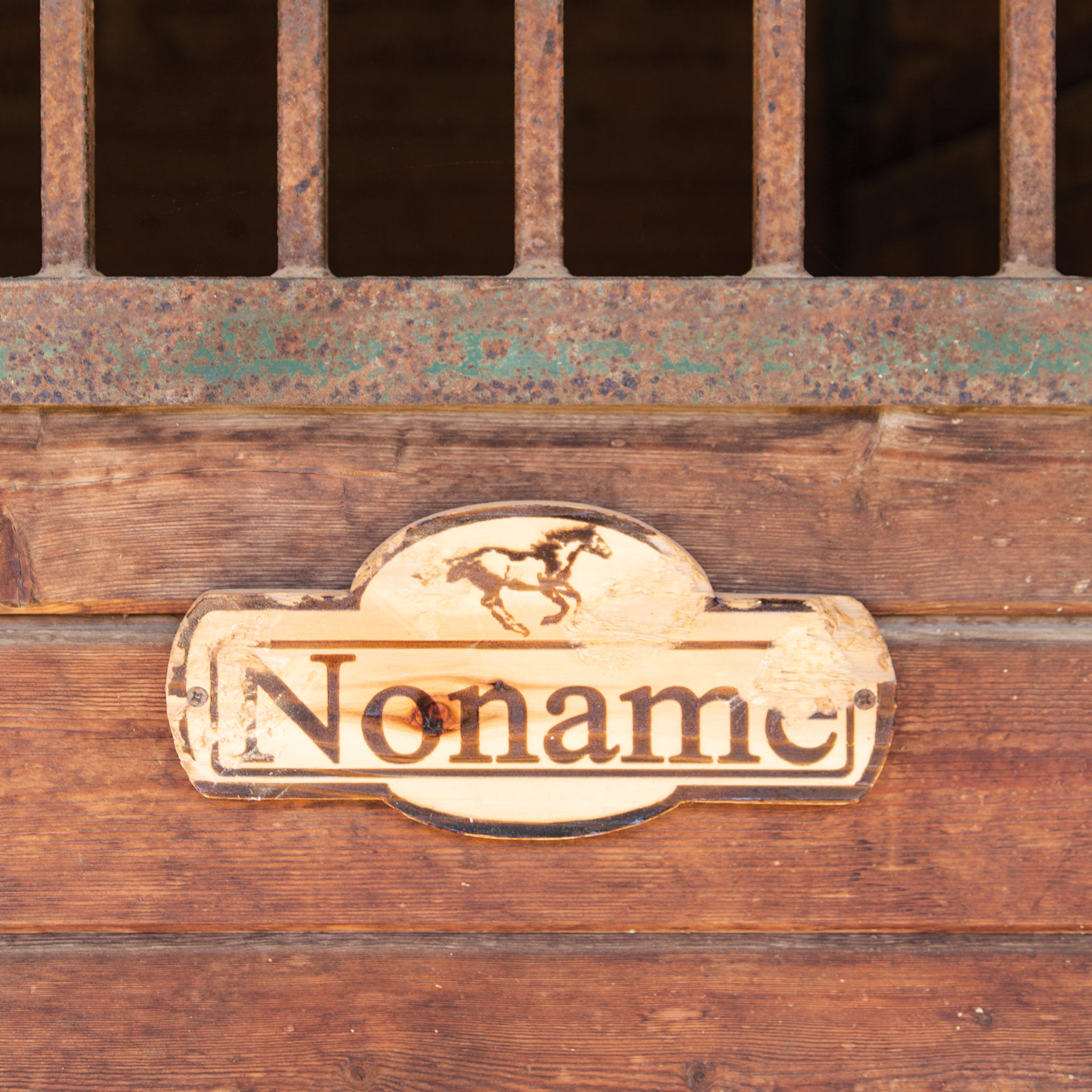
WILD MUSTANG MAKEOVERS
Wylene Davis, also known as Extreme Wylene, is a daredevil horsewoman who started competing when she was a child. She has gained notoriety as a fearless, go-to trainer for adopted mustangs through competing in Extreme Mustang Makeover challenges created by the Mustang Heritage Fund, which promotes the adoption of wild horses.
In these competitions, 100 participants (professionals and amateurs) have 100 days to tame a wild mustang from a BLM facility and then present each horse to be judged on trainability, versatility and adoptability. The top 10 teams ride in a freestyle competition that culminates in the crowning of a champion, and a public auction to place all 100 horses in permanent homes. To date 3,866 mustangs have been adopted at the events.
Wylene has competed in 14 makeovers throughout the U.S., won three championships and has always finished as a top finalist. The first makeover competition she entered was in Sacramento in 2008. But it was the second one, in Texas—with a 4-year-old horse named Filthy Rich—that changed her life. “That horse was the toughest ever and the best ever. My life is 100% what it is now because of him and all of the other wild horses I have trained.”
In addition to Noname, Wylene has worked with numerous other adopted mustangs in California, and she personally placed a mustang named Monkey in Los Angeles. “My husband, Randall, and I adopted Monkey from the BLM seven years ago. I started working with the horse, and then Randall trained and competed with him. He was living on our ranch when we decided to find a good home for him. I called a friend in LA who made the introduction to his forever family in Palos Verdes.”
“My first training trip to Los Angeles was in 2012 when I was invited to put on a horsemanship clinic. I have been going back ever since to help people build confidence, overcome fear and build trust with their horses.”
Joe and Jenny Litchfield purchased Monkey from the Davises on Valentine’s Day in 2013 for their oldest daughter, Claire. When Claire went away to college, her younger sister, Charlotte, took the reins and is successfully competing in high school equestrian events and trail riding with him.
“Monkey is super easygoing and wants to please everyone. Showing people how docile he is even in stressful situations is always fun. He is also really sure-footed on any terrain on the trails,” says Charlotte with pride.
Wylene says California is one of her favorite places to visit to help people with their mustangs and other horses. “My first training trip to Los Angeles was in 2012 when I was invited to put on a horsemanship clinic. I have been going back ever since to help people build confidence, overcome fear and build trust with their horses.”
Her training clinics are for all riding disciplines, all breeds and all ages, and are built on riders’ having a great time while learning and improving their relationships with their horses. She teaches ground work, safety, herd language, fear extinguishers, obstacle and trail riding, how to manage problem horses, reining and more. “I am most fulfilled when a student says, ‘I can’t believe I did that!’” she says.
Regarding the hotly debated misfortune of today’s wild horses, Wylene’s perspective comes from that of a ranch-residing cowgirl with extensive experience interacting with the BLM. “The people who work for the BLM are doing their best with a bad situation, and they really want to help the horses,” she explains. “The challenge is that since there are no natural predators, the herds double about every four years—which leads to overpopulation and overgrazing. The Wild Mustang Heritage Fund and other organizations fortunately shine a light on horses stuck in holding pens, which helps get them adopted.”
Wild mustangs compete with other wildlife and domestic livestock for natural resources on public land as they fall prey to environmental and ecological hardships, politics, power struggles and money. The lucky mustangs that get adopted transition to become beloved companion animals, working horses, competition partners or special-needs therapy healers. Some find homes in prison inmate rehabilitation programs. Regardless of why people dig their heels in on opposing sides or choose to turn a blind eye to their struggles, America’s iconic wild horses are worthy of collaborative efforts that ensure they will continue to thrive … as they have throughout history.
How Well Do You Know the History of Hollywood’s Capitol Records Building?
Did you know the red beacon on the spire continuously blinks the word “Hollywood” in Morse code?
This Oakland-Based Artist Upholds the Tradition of Stained-Glass Design
Theodore Ellison brings century-old techniques to a contemporary vision.
ARTBOUND is Back with an Inside Look at Groundbreaking Alternative Comic Love & Rockets
Celebrating its 40th anniversary.
Get the Latest Stories
